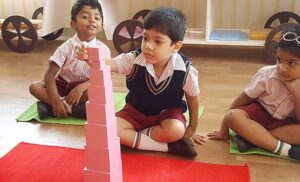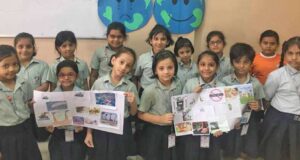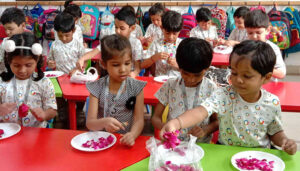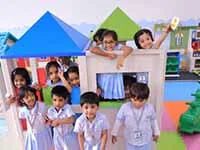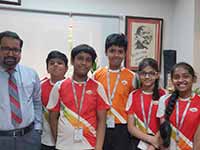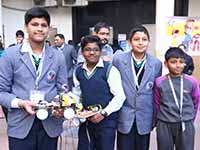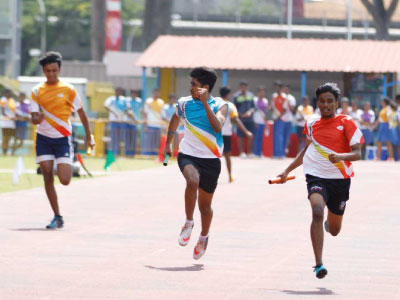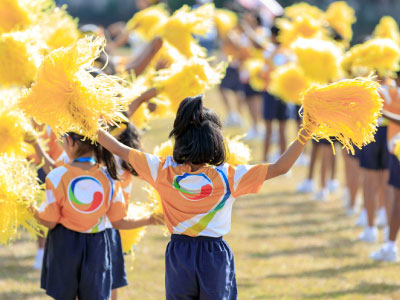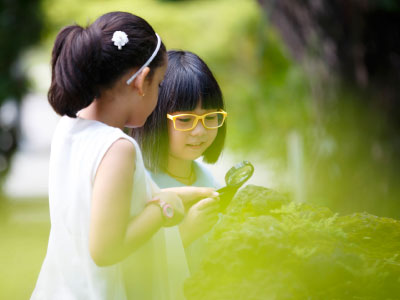Download our FREE Academic Calendar now! 📚 Start your child’s journey to success.
Science games for kids are activities and experiments that teach kids about scientific concepts and principles in a fun and interactive way. These games can make learning enjoyable because they allow kids to actively participate in the learning process, rather than just listening to a lecture or reading about a topic.
Science games can also make learning more engaging and memorable because they allow kids to see the results of their actions and experiments first-hand.
Choose A Science Game That Matches Learning
The choice of science games for kids will depend on several factors, including the child’s age, interests, and learning goals. Some science games may be more appropriate for younger children, while others may be more suitable for older children with more advanced skills and knowledge.
It is important to choose science games that are age-appropriate and engaging for the child in order to ensure that they are able to learn and have fun at the same time. Some other factors to consider when choosing science games for kids include the materials and resources needed, the level of difficulty, and the amount of time required to complete the game. Many Schools like noida international school organise science games for their students.
Science As A Playful Learning Game For Kids
1. “Build a Balloon Rocket” – This simple yet fun game can teach kids about the principles of motion and air pressure. All you need is a straw, a piece of string, and a balloon. Tie one end of the string to a doorknob or any stationary object and the other end to the straw. Have the child blow up the balloon and then let go, watching as the balloon propels the straw forward.
2. “DIY Lava Lamp” – This classic science experiment allows kids to learn about density and the effects of mixing liquids. Fill a clear bottle or jar halfway with water and then add a few drops of food colouring. Next, add a spoonful of oil and watch as the oil and water separate, creating a “lava” effect when the bottle is shaken.
3. “Make a Lemon Battery” – This game allows kids to learn about electricity and conductivity in a hands-on way. Simply cut a lemon in half and stick a galvanized nail and a copper coin into each half. Connect the nail and coin with a wire, and voila! You have created a simple lemon battery that can power a small light.
4. “Create a Tornado in a Bottle” – This game teaches kids about the science behind tornadoes and how they form. Fill a plastic bottle with water and then place a small piece of paper or a plastic bag in the neck of the bottle. Tightly seal the bottle and then have the child spin the bottle in a circular motion. As the bottle spins, a small tornado-like vortex will form.
5. “Grow Your Own Crystals” – This game allows kids to learn about crystallisation and the properties of minerals. Simply mix together a solution of hot water and a crystal-forming substance like salt or borax, and then pour the solution into a jar or container. Allow the mixture to cool and then watch as beautiful crystals form.
6. “Make a Homemade Thermometer” – This game teaches kids about temperature and the properties of gases. Fill a clear plastic bottle with hot water and then add a few drops of food colouring. Place a balloon over the opening of the bottle and watch as the balloon expands and contracts as the temperature changes.
7. “Build a Simple Circuit” – This game allows kids to learn about electricity and the flow of electrical current. Simply connect a battery, a light bulb, and a switch using wire and watch as the light bulb lights up when the switch is flipped.
8. “Create a Rain Cloud in a Jar” – This game teaches kids about the water cycle and the formation of clouds. Fill a jar with hot water and then add a few drops of food colouring. Next, add a spoonful of hair gel (which represents the clouds) and watch as the gel “rains” down into the water when the jar is tilted.
9. “Grow Your Own Plants” – This game allows kids to learn about plant growth and the importance of sunlight, water, and soil. Simply provide kids with seeds, soil, and a small container and watch as they observe and care for their own plants.
10. “Make a Magnetic Maze” – This game teaches kids about magnetism and the properties of different materials. Simply create a maze out of cardboard and then place a small magnet at the start. Have kids use a magnet to guide a steel ball through the maze, learning about the different materials that are attracted to the magnet and those that are not.
11. “Mix & Match Physics Game with Play Dough” – Kids can learn about primary and secondary colours as they mix play dough and match it to objects around the house in this fun game.
12. “Tug of War Physics Game” – Teach kids about friction by playing a game of tug of war. This group game is a great way for kids to learn about physics through hands-on activities.
13. “Racing Ramps Game for Velocity” – Kids can learn about velocity by building ramps and racing cars and balls on them. As they build the ramp, kids can learn about how different shaped blocks fit together. By racing different objects and discussing their weight and shape, kids can learn about why some objects move faster than others.
14. “Egg Walking Science Game” – Have your child walk through rows of raw eggs to show her how an egg’s form makes it sturdy enough to hold a person’s weight.
15. “Chain Reaction Simulation” – Craft sticks can be used to teach your child about chain reactions! By measuring how long a chain your child can create before starting the chain reaction and watching it collapse, you can turn this into a game.
16. “Construct A Spaceship” – Give students questions to consider as they play to turn this into a science game. What variables might affect their design? Children will use their imaginations to consider various materials and designs.
17. “Guess the Sound” – With the help of this incredibly easy Guess the Can learning game, kids can learn about sound energy. Kids can guess what’s inside by placing various objects in cans, covering the cans, and asking them. Your child’s science understanding will increase when you pair this with a lesson on sound energy. With the help of this incredibly easy Guess the Can learning game, kids can learn about sound energy. Kids can guess what’s inside by placing various objects in cans, covering the cans, and asking them. Your child’s science understanding will increase when you pair this with a lesson on sound energy.
18. “Water Dice Game” – The functioning of the earth’s water cycle is illustrated by this dice game. You’ll need to collect several youngsters to play because it’s a group game.
19. “Periodic-Table Crossword Puzzle” – This crossword puzzle requires very little setup and is the ideal low-key chemistry game. Print it out, then let your child play with it as they study the elements.
20. “Body Circulation Game” – Players in this game transfer food, waste, and blood cell tokens around the body. The winning team is the one that provides or gets rid of all of its tokens first.
21. “Solar System Model Building Game” – Each component of the solar system model can be built by children alone, or it can be turned into a game where each team of children builds their own and receives points for correctness, delicacy, and execution.
Why Are Science Games For Kids So Important?
Kids of all ages may learn about how the world functions through science games and activities. And if you’re wondering how to make learning science enjoyable for children, the solution is to use learning games. There are several educational games that explore multiple angles on a new science subject.
Children have the chance to learn and put many different abilities and qualities into practice through science education activities. Along with analytical, logical, and problem-solving abilities, these include interpersonal, teamwork, and perseverance qualities.
What To Learn Through Science Kids’ Games?
There are many science concepts that kids can learn through games. Some examples include:
The solar system: Kids can learn about the planets, their orbits, and the sun through games that involve building their own solar system or navigating a spaceship through the galaxy.
The human body: Games that teach kids about the different organs and systems of the human body can be a fun and interactive way to learn about anatomy and physiology.
Physical forces: Games that involve building structures or solving puzzles can teach kids about concepts such as gravity, friction, and leverage.
Natural disasters: Games that simulate natural disasters such as earthquakes, hurricanes, and tornadoes can teach kids about the causes and effects of these events.
Environmental science: Games that involve building ecosystems or managing natural resources can teach kids about concepts such as biodiversity, conservation, and sustainability.
Benefits Of Science Games For Children
Young children benefit from opportunities for scientific discovery in early years settings in a number of ways.
1. It Can Encourage A Lifelong Passion For Science
Early on, even as neonates, children are bred to explore and experiment. On the other hand, research indicates that by the age of 7, the majority of kids have established attitudes toward science education that will either be good or negative. So we can nurture and cultivate a good approach to science education that will stay with them in the future by using their inherent predispositions early on, during this important developmental time.
2. It Provides A Fundamental Foundation In Scientific Ideas And Methodology
Even the most straightforward activities can expose kids to scientific ideas and encourage scientific thinking. Early science education may give children a solid foundation in terms of what they learn and how they learn it, which will serve them well in the future. Early childhood educators can aid youngsters in beginning to make sense of the world around them and obtain some grasp of how things work by fostering and guiding their natural curiosity and acquainting them with basic scientific jargon.
3. It Encourages The Growth Of Additional Abilities And Qualities
Children have the chance to learn and put many different abilities and qualities into practise through science education activities. Along with analytical, logical, and problem-solving abilities, these include interpersonal, teamwork, and perseverance qualities.






